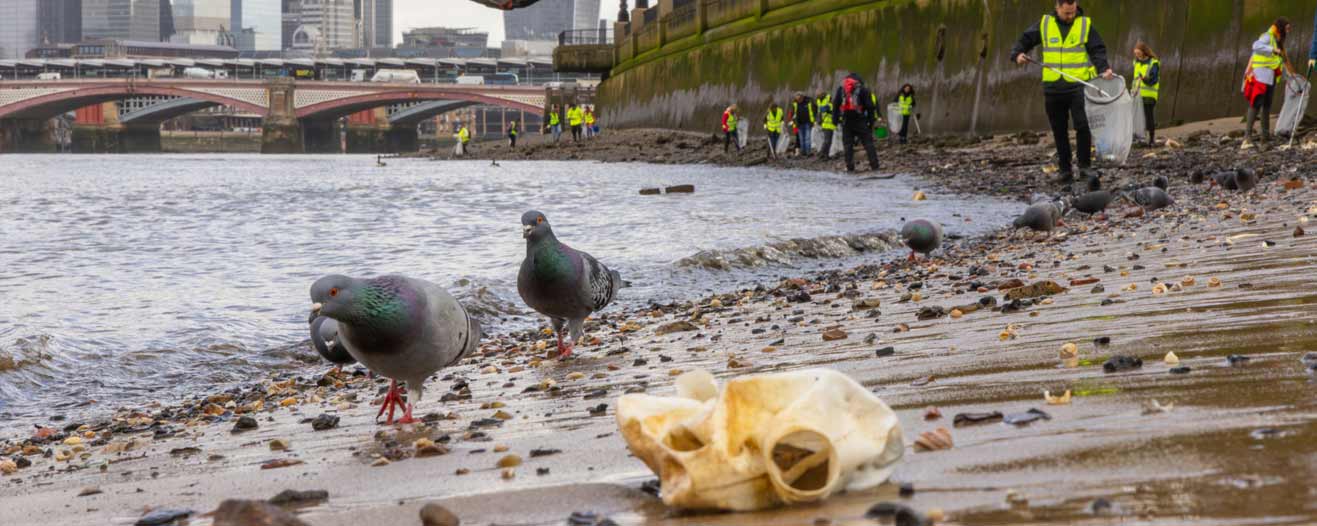- Find a Pet
- Advice and Welfare
- Ways to Give
- Get Involved
- What We Do
- Search
- My RSPCA
- Report a concern
- Gift in Wills
-
Colour modeVivid Calm
- Home
- Advice and welfare
- Litter
How littering harms animals
We receive, on average, 10 calls a day about animals affected by litter. This number spikes in the summer months. We estimate that the actual figure is much higher as injured animals are not always found. How we dispose of our rubbish greatly impacts wildlife, especially wild birds.
Find out what to do if you've found a wild animal injured by litter.

The dangers of litter to animals
Everyday objects that seem perfectly safe can become hazardous when animals come into close contact with them. By binning our rubbish safely instead of littering, we're making choices that could save many lives.
Protecting animals from harmful rubbish is easy. Dispose of your rubbish responsibly by recycling, reusing or simply putting it in the bin!
Plastic bags
Animals can climb inside plastic bags and suffocate, or attempt to eat them and choke. Simply tying a knot in the top of plastic bags before recycling can help prevent deaths.
Plastic can holders
Animals can also get entangled in plastic can holders and suffer deep wounds or even choke. Always cut the loops before recycling.
Balloons
Balloons and discarded decorations are a choking hazard as some animals may try to eat them. Balloon releases are also very threatening to wildlife. Even biodegradable balloons could still take weeks to degrade. Remember it only takes a second or two for an animal to swallow a balloon fragment.
Always deflate balloons and cut them up before putting them safely into your bin. It's really that simple!
Sky lanterns
Sky lanterns/Chinese lanterns can seriously injure animals if eaten, or become entangled or trapped by them.
Read more about sky lanterns and environmentally-friendly alternatives.
Containers and cans
Animals looking for food can get trapped in cans or injured by sharp edges. To prevent harm to animals:
- Clean and empty cans/tubs after use
- Pinch cans shut
- Cut containers in half before recycling where possible
Elastic bands
Elastic bands seem harmless but can wrap around small animals and the beaks of birds. If swallowed, they can also cause choking. Reuse bands where possible, or cut them open before putting them in the bin.
Fishing tackle
Fishing litter injures thousands of wild animals every year. Animals get entangled in lines and hooks can pierce the skin or be swallowed. By fishing responsibly, you can avoid accidental harm to the local wildlife and environment.
Read our top tips for anglers and how to fish responsibly.
Glass
Broken glass can also cause serious injury. It's easy for animals to become trapped in jars. Always clean and recycle glass to help prevent injuries and avoid unnecessary harm.
Vapes
There are 1.3 million disposable vapes thrown away weekly in the UK. This new type of litter pollutes the environment and risks wildlife. Many people are unaware of how to safely dispose of used vapes by putting them in with their general waste or discarding them on the street. Vapes become a choking hazard to wildlife unless thrown away properly.
The UK government has confirmed a ban on selling disposable, single-use vapes, which will come into effect on June 1, 2025. Until then, and for any existing vapes after the ban, it's important to dispose of vapes properly. Vapes should not be placed in normal household bins or battery recycling points at supermarkets.
How to dispose of vapes properly and protect our wildlife.



